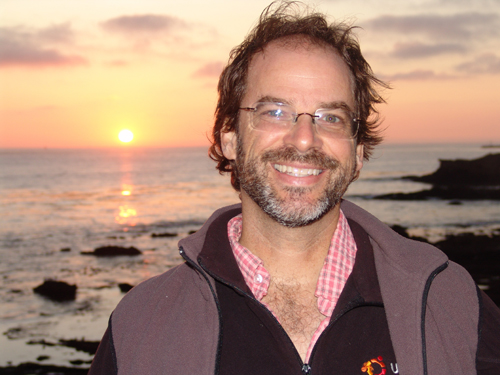
Dr. Charles Zender, University of California, Irvine (UCI), will present “Radioactivity and Wind: The Menace and Promise of Air” as the featured speaker for the Idyllwild Community Recreation Council’s (ICRC) Speaker Series. This is Zender’s second talk for ICRC. In 2009, he spoke about climate change.
Zender will focus on concerns in the U.S. that followed the March 11, 2011 Japanese earthquake and nuclear disaster at the Fukushima plant in northern Japan. U.S. media carried stories, as the nuclear disaster unfolded, of West Coast residents worried that radiation from the crippled plant would reach California in amounts harmful to the general population. Zender will address those concerns and also speak about other airborne contaminants that are not often discussed but are, in his opinion, even more likely to cause harm than radioactivity carried in a plume across nearly 6,000 miles of Pacific Ocean.
“I won’t be talking about the complete content of the plume,” said Zender when asked if he would speak to the possibility that plutonium and uranium were part of airborne contaminants released at Fukushima. He said he would discuss the amounts of radiation normally present in our atmosphere as compared with whatever additional levels resulted from Fukushima and whether those additional amounts raise justifiable concerns.
Zender said the extent of the disaster’s aftermath is still unknown since some of the plant’s buildings remain too hot to enter. “They still can’t explore many of the interiors of the collapsed domes,” said Zender. “Tokyo Electric Power Company [Fukushima operator] was not forthcoming about what was being released,” he explained acknowledging the notion of a cover-up. “But the disaster in Fukushima is really not an issue for those of us downwind [at this great distance].”
Not only will Zender explain why he minimizes the danger to Californians of these issues, but he will also focus on what we in California should be more concerned about. These include other atmospheric contaminants such as soot, which he said causes measurably more deaths than trace radiation amounts from the Fukushima plume. Zender did acknowledge that the affect of the disaster on people close to Fukushima is a matter with potentially serious long-term aftereffects. Immediately following the disaster, scientific panels posited that inhaled plutonium results in high probabilities of cancer. Plutonium also contaminates the soil and remains deadly for many years. The half-life of plutonium 239, a component of mixed oxide fuel present in the Fukushima fuel rods, six percent is over 24,000 years and could, according to a National Public Radio report, contaminate soil for tens of thousand of years (see www.npr.org/2011/03/16/134600825/plutonium-in-fuel-rods-cause-for-concern).
Zender said he might discuss the affect on the food chain of massive amounts of radiation dumped into the ocean at Fukushima. That, he acknowledged, could raise long-term concerns that could affect U.S. residents, given the international nature of seafood commerce and supply.
Zender is a professor of earth system science at UCI and vice chair of graduate studies in his department. He holds a bachelor’s degree in physics from Harvard and a doctorate in atmospheric science from the University of Colorado at Boulder. He conducted postdoctoral research at the National Center for Atmospheric Research in Boulder and joined the Earth System Science Department faculty at UCI in September 1999. His wry humor is on display on his website biography. It’s a quick read and worth the visit to www.ess.uci.edu/~zender/.
Zender speaks at 6 p.m. Wednesday, Jan. 18 at Creekstone Inn. There is a wine and cheese reception at 5:30 p.m. Both are free to the public.










